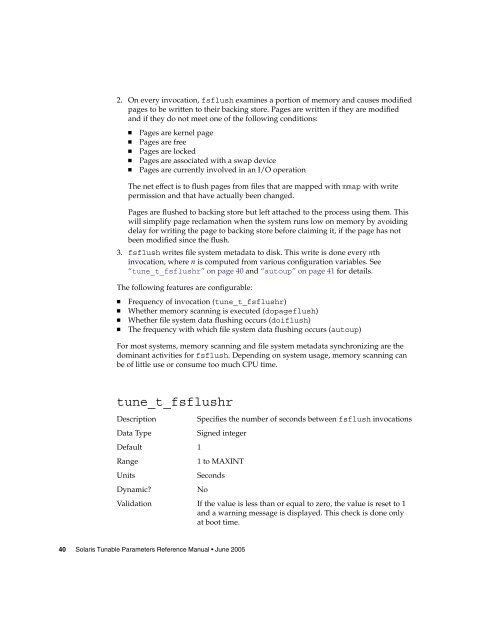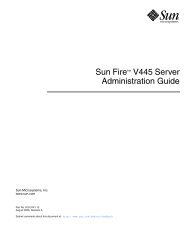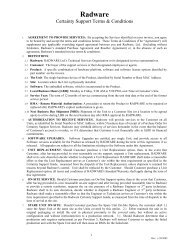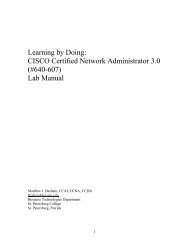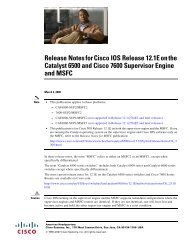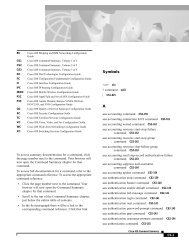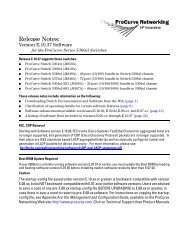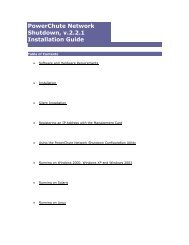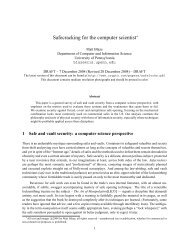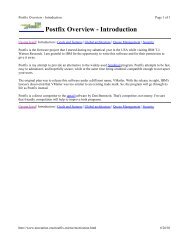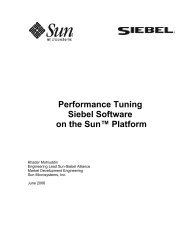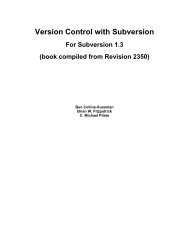Solaris Tunable Parameters Reference Manual - SCN Research
Solaris Tunable Parameters Reference Manual - SCN Research
Solaris Tunable Parameters Reference Manual - SCN Research
You also want an ePaper? Increase the reach of your titles
YUMPU automatically turns print PDFs into web optimized ePapers that Google loves.
2. On every invocation, fsflush examines a portion of memory and causes modified<br />
pages to be written to their backing store. Pages are written if they are modified<br />
and if they do not meet one of the following conditions:<br />
■<br />
■<br />
■<br />
■<br />
■<br />
Pages are kernel page<br />
Pages are free<br />
Pages are locked<br />
Pages are associated with a swap device<br />
Pages are currently involved in an I/O operation<br />
The net effect is to flush pages from files that are mapped with mmap with write<br />
permission and that have actually been changed.<br />
Pages are flushed to backing store but left attached to the process using them. This<br />
will simplify page reclamation when the system runs low on memory by avoiding<br />
delay for writing the page to backing store before claiming it, if the page has not<br />
been modified since the flush.<br />
3. fsflush writes file system metadata to disk. This write is done every nth<br />
invocation, where n is computed from various configuration variables. See<br />
“tune_t_fsflushr” on page 40 and “autoup” on page 41 for details.<br />
The following features are configurable:<br />
■<br />
■<br />
■<br />
■<br />
Frequency of invocation (tune_t_fsflushr)<br />
Whether memory scanning is executed (dopageflush)<br />
Whether file system data flushing occurs (doiflush)<br />
The frequency with which file system data flushing occurs (autoup)<br />
For most systems, memory scanning and file system metadata synchronizing are the<br />
dominant activities for fsflush. Depending on system usage, memory scanning can<br />
be of little use or consume too much CPU time.<br />
tune_t_fsflushr<br />
Description<br />
Data Type<br />
Default 1<br />
Range<br />
Units<br />
Dynamic?<br />
Specifies the number of seconds between fsflush invocations<br />
Signed integer<br />
1 to MAXINT<br />
Seconds<br />
No<br />
Validation If the value is less than or equal to zero, the value is reset to 1<br />
and a warning message is displayed. This check is done only<br />
at boot time.<br />
40 <strong>Solaris</strong> <strong>Tunable</strong> <strong>Parameters</strong> <strong>Reference</strong> <strong>Manual</strong> • June 2005


